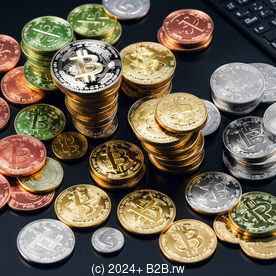The Importance of Global Payment Solutions
In today’s digital marketplace, the ability to accept and manage payments from various countries is paramount for businesses aiming to expand their reach. Global payment solutions empower e-commerce businesses to facilitate transactions across different currencies and payment methods, ensuring that consumers can interact seamlessly with brands regardless of their geographical location.
An effective global payment solution encompasses multiple factors including regulatory compliance, currency conversion, electronic payment security, and consumer trust. Given the complexities involved in navigating varying legal frameworks and cultural expectations, businesses must invest in tailored solutions that effectively address these challenges.
Understanding the importance of global payment solutions extends beyond mere functionality. It illustrates how businesses can adapt to shifting landscapes by leveraging technology to enhance customer experiences, drive sales, and build lasting relationships with international consumers.




Comprehensive Perspectives on Global Payment Solutions
Economic Perspective
From an economic standpoint, global payment solutions provide significant benefits by increasing sales opportunities in emerging markets. By accommodating local payment preferences and currencies, businesses can improve conversion rates and reduce cart abandonment. However, organizations must also be cognizant of variable transaction costs and currency fluctuations that can affect profit margins.
Political and Legal Perspectives
Political factors heavily influence global payment practices. Governments impose various regulations designed to protect consumers, prevent fraud, and combat money laundering. Thus, understanding the legal landscape across different jurisdictions is critical for compliance. Companies must work with payment solution providers who understand these regulations and can navigate them effectively.
Technological Impact
Technologically, advancements in payment gateways, mobile payments, and digital wallets have transformed the payment processing landscape. Solutions utilizing artificial intelligence and blockchain are paving the way for enhanced security protocols, faster transactions, and real-time fraud detection. Businesses can now leverage these innovations to streamline their payment processes and offer customers a variety of options, including cryptocurrencies.
Social and Cultural Implications
On the social front, consumers increasingly seek out brands that exemplify cultural competence. Businesses that accept local payment methods demonstrate an investment in customer experience, fostering trust and loyalty. Understanding the cultural nuances associated with payment preferences can drastically improve customer satisfaction levels.
Environmental and Ethical Considerations
Environmental concerns, while less directly tied to payment solutions, still play a role in consumer choices. Ethical practices concerning transaction transparency and data privacy are essential. Brands adopting sustainable practices in their payment processes resonate better with eco-conscious consumers, strengthening relationships.
Historical Context and Future Trends
Historically, the growth of e-commerce has been accompanied by the evolution of payment solutions. Vendors that previously depended on bank transfers now have access to a myriad of payment options. The future points toward continued innovation with open banking and embedded finance reshaping how we think about transactions.




Core Challenges of Global Payment Solutions
Addressing the Obstacles: Effective Strategies
Navigating international payment solutions is accompanied by a range of challenges. Below are key issues businesses face and the corresponding strategies to mitigate them:
- Complex Regulations: Each country has its own set of laws regarding payments, including anti-fraud measures and data privacy laws. Engaging compliance experts ensures that businesses remain within legal bounds.
- Currency Exchange Risks: Fluctuating exchange rates can severely impact revenue. Implementing hedging strategies or pricing in local currencies can manage these risks effectively.
- Diverse Payment Preferences: Consumers in different regions favor distinct payment methods, such as local wallets or credit cards. Offering multiple payment options can cater to this and increase sales.
- Transaction Costs: High fees can discourage businesses from expanding internationally. Partnering with cost-effective payment processors minimizes expenses.
Our specialized company offers comprehensive global payment solutions tailored to tackle these challenges for just $650. Our solutions include:
- Customized payment integration across various platforms
- Real-time currency conversion and reporting
- 24/7 customer support for international transactions
We understand the complexities of global payments and are dedicated to simplifying them for you. Interested in knowing more? Feel free to contact us at info [_at_] b2b.rw for further inquiries.
If you are ready to enhance your global payment strategy, the price for our tailored service is $650. Please proceed to our Checkout Gateway and use our payment processor to secure your tailored global payment solution today!






